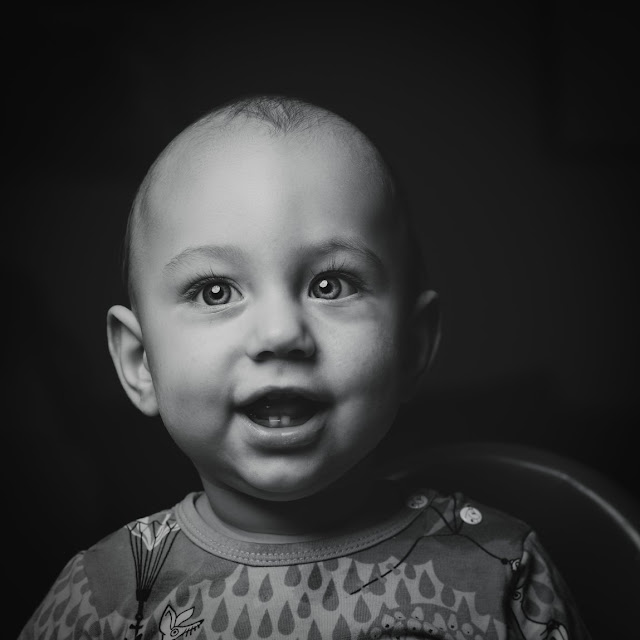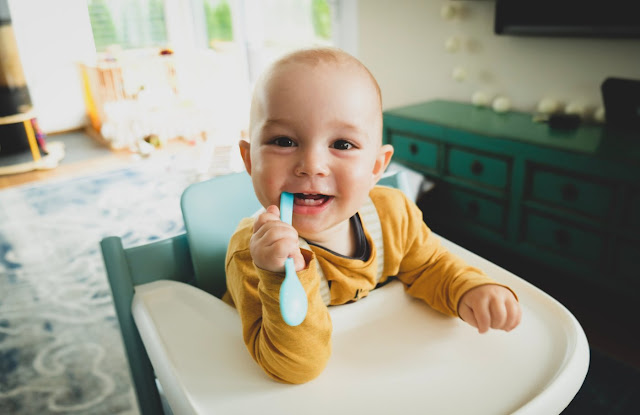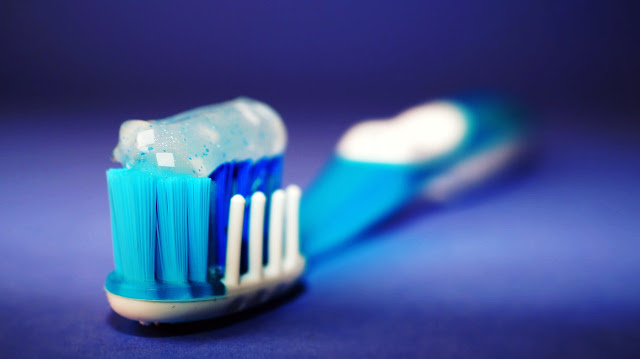When does a baby start teething?
Most babies start to drool a lot and explore the world by putting everything in their mouth around three months of age or so. And when babies start to do this, parents just assume that their babies are teething because excessive drooling can be a sign of teething. However, in those early days, it's probably just them exploring the world. To avoid all confusion a parent could then ask, when does a baby start teething?
A baby can get their first tooth anytime between four and seven months and sometimes it can happen a little bit earlier and sometimes a little bit later than that. The first two teeth to show up are usually the bottom two middle teeth.
After that, the top two middle teeth usually come in, but those are not hard and fast rules and sometimes other random teeth show up before those. For most babies, that first tooth comes in around six months of age and after that, it just feels like they're continuously teething because they'll start to get the symptoms that'll breakthrough.
Sometimes the baby will show signs of teething, but the term tooth won't actually erupt. He's waiting for it to eventually come in and then they usually get their last baby tooth by around three years of age. And so it just feels like one continuous process for a few years.
Actually, the most common symptoms associated with teething are excessive drooling, like I mentioned before, mild irritability sometimes sleeps disturbances and a low-grade fever that any temperature of 100.4 degrees Fahrenheit or 38 degrees Celsius is usually a sign of another type of infection or illness.
If your baby is running a fever, call your pediatrician and after asking you more specific questions, they'll be able to give you tailored information and advice. A lot of parents have heard that diarrhea and other symptoms are associated with teething, but there's no research to show that that's true. Maybe it's just coincidence and the baby had other things going on at the same time that the baby start teething.
The bottom line is that many parents write off symptoms associated with other illnesses and just think it's teething and then actually delay treatment for underlying medical conditions. So if you notice that your baby is having unusual symptoms and they're persisting or getting worse, call the doctor and then they'll be able to decide if anything needs to be done about it.
You may also notice when your baby's teething that there's a swollen red gum area where the tooth is trying to erupt and there are things that you can do to alleviate your baby's discomfort. You can talk with the doctor about over the counter pain relievers that are appropriate for your baby's age and weight.
They'll be able to tell you what dosage and schedule are appropriate and you can also wash your hands thoroughly, make sure your nails are trend and gently rub the area that looks red and swollen and this pressure can offer a lot of pain relief to your baby.
This is another reason why they put everything in their mouth. A lot of parents use teething rings when their baby start teething and that's fine as long as they're solid. Avoid the fluid-filled ones and just make sure that they're chilled, not frozen because that can actually cause problems too. Another suggestion is using a clean washcloth.
You can get it with cold water, squeeze it out, and then while you're supervising your baby, let them just bite on it and that cold can be very comforting to them to avoid teething tablets that have either Bella, Donna or benzocaine in them because the FDA has issued warnings against both of those for complications associated with them.
Also, avoid Amber necklaces that claim to help with teething symptoms because the necklace around the baby's neck can cause strangulation and also the little pieces can be a choking hazard. If you have more questions about what to do for your child's teething symptoms, talk with your pediatrician.
As for caring for when your baby start teething, as soon as the first teeth are up, you can start brushing them with a soft-bristle toothbrush and you can use fluoride toothpaste. Use just a smear or about the size of a grain of rice and especially do this before you put them to bed at night.
Avoid giving your baby a bottle or juice before bed because it can lead to tooth decay. Always make your baby's first appointment with a dentist around their first birthday. This is a great opportunity for you to ask the dentist questions about concerns or observations that you've made, and it's also an opportunity for them to educate you on proper oral hygiene for your baby.
This is also good for your baby as they become familiar with a dentist and have a positive interaction with them before they might have negative ones in the future if they have to actually have a procedure or care down on their teeth.










No comments:
Post a Comment